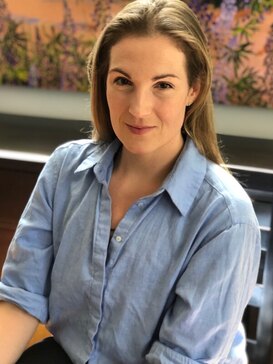Quantitative Skills + Qualitative Sensibility

Welcome!
I am a data scientist who uses computational methods to tackle complex and challenging data problems. I use artificial intelligence and machine learning to create scalable and interpretable measurements for abstract questions that typically require many hands-on hours to address.
I am curious and creative: I love to develop and adapt tools as they become available. As the same time, my qualitative sensibility drives me to create products that makes strategic sense for the big picture. I start from a place of appreciation that a deep understanding of data is the route to identifying the insights and opportunities that quantitative methods can unlock.
I am currently working on a project developing a bespoke Bayesian Item Response Theory model (IRT-M) that solves a long-running interpretability problem in an entire class of models. In application, this produces a tool to create interpretable measurements of abstract concepts from multimodal and siloed data.
I excel in leadership and translation roles where I identify opportunities to produce new analytic products from existing models, helping my organizations amortize their investments in new research.
For example, after being a member of the core IRT-M development team, I took over leadership of the project. At the helm, I scaled the code for distribution as an R package, created a user vignette to boost adoption, and identified ways to use the already implemented model to extract additional value from existing data products. I tripled the number of projects associated with the model, growing the impact of our time and grant investment.
I am a data scientist who uses computational methods to tackle complex and challenging data problems. I use artificial intelligence and machine learning to create scalable and interpretable measurements for abstract questions that typically require many hands-on hours to address.
I am curious and creative: I love to develop and adapt tools as they become available. As the same time, my qualitative sensibility drives me to create products that makes strategic sense for the big picture. I start from a place of appreciation that a deep understanding of data is the route to identifying the insights and opportunities that quantitative methods can unlock.
I am currently working on a project developing a bespoke Bayesian Item Response Theory model (IRT-M) that solves a long-running interpretability problem in an entire class of models. In application, this produces a tool to create interpretable measurements of abstract concepts from multimodal and siloed data.
I excel in leadership and translation roles where I identify opportunities to produce new analytic products from existing models, helping my organizations amortize their investments in new research.
For example, after being a member of the core IRT-M development team, I took over leadership of the project. At the helm, I scaled the code for distribution as an R package, created a user vignette to boost adoption, and identified ways to use the already implemented model to extract additional value from existing data products. I tripled the number of projects associated with the model, growing the impact of our time and grant investment.